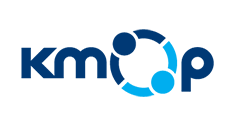EASE – Entrepreneurs for Autonomy, Self-development and Equality
EASE aims to establish the benefits, or potential benefits of Education for adult refugee women, specifically in an area core to job creation and social inclusion: entrepreneurship.
Grant Agreement Number: 2019-1-UK01-KA204-062106
Funded by: Erasmus+ Duration: 09/2019-10/2022

Challenge
According to CEDEFOP (European Centre for the Development of Vocational Training), the individual Adult Education systems in most European countries, although very varied, form barriers for refugees. It is therefore difficult, if not impossible in some professions and regions, for refugees to enter as adult newcomers, as many vocational routes are inflexible. Moreover, in all EU countries, there is a lack of advice on suitable professional routes, training and education. CEDEFOP’s research also showed that all EU countries face difficulties regarding the official recognition of refugees’ previous qualifications. This situation is even more difficult for women refugees, who face discriminations and are given less opportunities in the labour market.
Innovation
EASE aims to establish the benefits, or potential benefits of Education for adult refugee women, specifically in an area core to job creation and social inclusion: entrepreneurship. The project’s goal resides in improving these women’s access to Adult Education and consequently to the labour market, as well as improving the Adult Education offers by supporting actors working in this field.
The project is innovative because it will initially analyze the situation in each country involved – by scouting the Adult Education programs offered for women refugees, their implementation, the results and problems – and afterwards it will explore how Adult Education policies and programs can affect racial equality.
Action

European Commission’s support for the production of this content does not constitute an endorsement of the contents, which reflect the views only of the authors, and the Commission cannot be held responsible for any use which may be made of the information contained therein.
Project Partners







